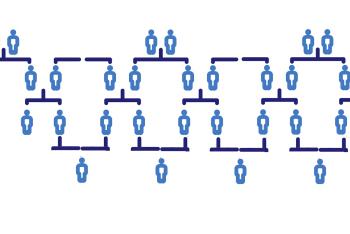For 81-year-old artist Bonnie Flanagan, an overall assessment of her health, which included a self...
Read More

In 2018, the National Cancer Institute reported 18.1 million new cancer diagnoses worldwide. Receiving a cancer diagnosis is never easy. But no matter where you are on your cancer journey, there are people, resources and teams of health care professionals ready to help you. Cancer treatment is not just treating the malignant components of your diagnosis, but also tending to your physical and mental health needs.
Whether you or someone you know was recently diagnosed with cancer, adjusting to a cancer diagnosis takes time.
“Cancer treatment aims to kill cancer cells. Unfortunately, sometimes the medicines and treatments hurt healthy cells in the process, causing people undergoing treatment to feel ill or weak,” said Erev Tubb, MD, FACP medical oncologist, hematologist and medical director of Inspira’s Leading-Edge Cancer Center. Common side effects of cancer treatment include fatigue, hair loss, nausea, vomiting, appetite changes, constipation, mood changes, low platelet count and fluctuations in weight.
“If you or a loved one is experiencing treatment-related side effects, never hesitate to reach out to your health care team. Your physical health is crucial to your recovery, and oftentimes, adjustments can be made to your treatment plan to help mitigate some of those adverse side effects,” said Dr. Tubb.
After receiving a cancer diagnosis, many people try to understand or rationalize why this experience happened to them. Sometimes, a cancer diagnosis depletes a person’s mental and emotional health.
In 2015, the National Center for Biotechnology Information Studies linked cancer patients rooted in religion—religious affiliation or service attendance—or spirituality—connection to a source larger than oneself—to a higher quality of physical health during their cancer treatment compared to cancer patients with weak emotional health. “Staying connected to your spiritual and emotional health is a key part of your cancer treatment, regardless of who and what you are faithful to,” said Dr. Tubb.
You are not alone. Inspira offers a variety of resources to cancer survivors including support groups, educational events and webinars, survivorship programs and more. For more information about resources and support for patients and caregivers, click here.

For 81-year-old artist Bonnie Flanagan, an overall assessment of her health, which included a self...
Read More
Uncover the hidden connections between your family's past and your future well-being as we delve...
Read More
Treating cancer requires an arsenal of tools and preventive measures. Explore the power of...
Read More
The material set forth in this site in no way seeks to diagnose or treat illness or to serve as a substitute for professional medical care. Please speak with your health care provider if you have a health concern or if you are considering adopting any exercise program or dietary guidelines. For permission to reprint any portion of this website or to be removed from a notification list, please contact us at (856) 537-6772